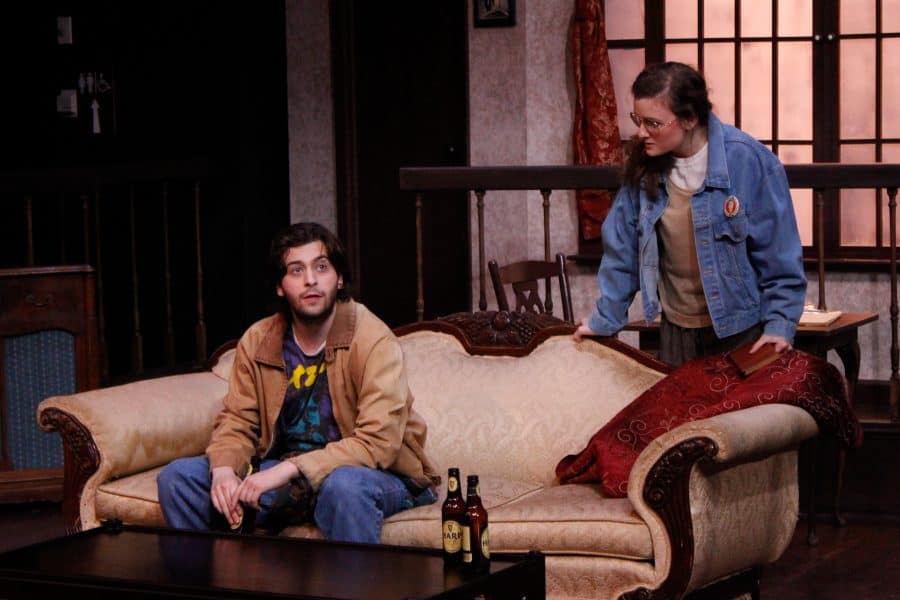Written in 1994 by Tony Kushner, “A Bright Room Called Day” takes place in 1933 Berlin on the very heel of the Nazis’ rise to power. It follows the life of film actress Agnes Eggling, who struggles with keeping both her artistic integrity, as well as her own livelihood amidst a Nazi-saturated environment. The play also stars a young woman from New York named Zillah who lives in 1990s Germany. The play juggles back and forth between the two characters and time periods.
What the play manages to accomplish is something rarely seen in theater, with the successful juxtaposition and blending of two distinct eras, all in the same location. It can be easy to get discombobulated with the many different plot strings tugging away onstage, but it all seamlessly comes together and unfolds in both one of the funniest and darkest tragicomedies I have ever seen.
Much of the characterization is strong, and some characters, such as Paulinka, a German film actress who appears superficial at first, reveal some striking, yet tragic depth. The special effects do much to create this effect, with dramatic changes in lighting coming in at perfectly timed moments. In one scene, Paulinka is talking to Agnes about meeting the devil, then the lights go off abruptly, save for one dim spotlight on Paulinka. Agnes is frozen in place and Paulinka begins monologuing about the devil, and how she feels so below average as a human being that not even the devil himself would consider a deal with her–powerful stuff.
The inability to live up to your own personal expectations is a prominent driving theme of the play, as all of the characters have some personal problem to contend with, either internally or externally. Zillah, the play’s contemporary political mouthpiece, questions standards of evil, most notably Hitler. What is a standard of evil if we cannot compare anyone to it? Is it still a standard if no one can ever be compared to Hitler? While she comes off as an absurd character for comparing Ronald Reagan to Hitler, the points she makes are quite apt and quite functional, especially in today’s political climate. I also can’t help but feel that there were a few much appreciated jabs at Donald Trump scattered throughout the play, such as the appearance of the actual devil at some point, who has blond hair and a business suit similar to Trump’s.
Each acting performance is exceptionally well done. The actors were able to switch between dark comedy and tragedy seamlessly without fault. Certain scenes of gravity showcase this very well, such as one character questioning whether he should have shot Hitler or not when he had the chance.
The play stands as both a powerful reminder of one of history’s most oppressive and nightmarish regimes ever to exist, as well as the frailty of ambition and pride. There are no happy endings here, but that’s not necessarily a bad thing. For in times of great evil, action and change most often come about in response to unwinnable situations. And with those parallels drawn to our own dire times under our own oppressive leadership, it helps to find comfort in those twisted and dark spaces.









